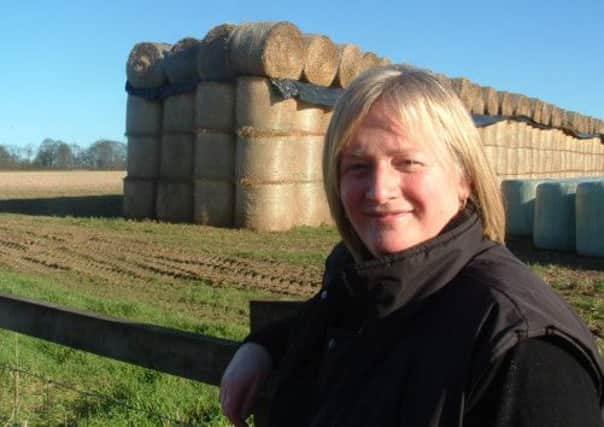Ploughing through the rural paperwork


Here’s a question? When is a farmer not a farmer? The answer, increasingly today, is quite often actually. Long gone are the days when a farmer could idle away the hours chewing the cud at his farm gate watching his sheep or cattle in the field, or taking a break from the tractor.
Nowadays you’re more likely to see him with a mug of tea beside his computer or filling in yet more paperwork.
Advertisement
Hide AdAdvertisement
Hide AdIn the past two decades, documents for traceability, cattle passports, Single Farm Payment, cross compliance, stewardship schemes and a plethora of others have appeared. It has become a living nightmare for some whose lives were much simpler back in the days when they really could stick their heads in the sand and it would take forever for authorities to make meaningful contact.
There are farmers who once had, or still are fortunate enough to have, a wife who was both willing and adept enough to handle the paperwork. But a combination of tough economic times, that means today’s farmer’s wife is more likely to earn an income from another job away from the farm, plus both the quantity of paperwork and the specialist nature of some of the forms, has brought about a new breed in farming – the professional farm secretary.
Christine Thompson farms with her husband David at their 500-acre Reagarth Farm, just east of Helmsley.
They run a mixed farming operation including cereal crops, sheep and cattle.
Advertisement
Hide AdAdvertisement
Hide AdThe cattle have had to take a little more of a back seat in recent times as Christine’s farm secretarial business has grown from the small acorn she started with way back more years ago than she cares to remember.
Indeed the whole farm secretarial world has come a long way from the days when a young lady would turn up at a farm with her gumboots on and sort through a motley collection of tatty invoices and receipts.
“For me the relationship between farmer and farm secretary has always been about trust and loyalty, without those you don’t get anywhere. Our role today isn’t just one of tidying up the paperwork, most of us involved with the Institute of Agricultural Secretaries and Administrators come from farming backgrounds ourselves and are able to not just offer our expertise on administration, but also advice based on what we also know about farming.
“Whilst IT has taken a great deal of the old legwork out of the job to me there is still nothing like visiting the farmer and building that relationship.
Advertisement
Hide AdAdvertisement
Hide Ad“I had looked after farmers’ books for a number of years, but it was around 2000 that things began to build to the business it is today.
“After the awful time farmers had when foot and mouth disease occurred in 2001 suddenly farm administration and our workload increased beyond compare.
“It was almost impossible for some farmers to deal with.
“Traceability and all the paperwork that came with it quite literally almost swallowed some of them up.”
“They really needed help more than ever,” says Christine.
“There had been a gradual increase over many years but with the amount that followed the deluge could so easily have broken some farmers.”
Advertisement
Hide AdAdvertisement
Hide AdLast year saw Christine’s business merge with Malton-based land agents, valuers and auctioneers Cundalls, which has seen the newly branded Cundalls RFAS as a larger organisation.
Christine is currently preparing for the Institute of Agricultural Secretaries and Administrators’ National Conference, at the Royal York Hotel on March 8-10.
“The institute is fast becoming a well-respected organisation in agriculture,” she explains.
“We’re no longer those girls in gumboots who used to put papers into order and made a farmer’s office look tidy.
“Today’s farm secretary and administrator is someone who can really make a positive difference to a farm, both in her skills and her knowledge.”